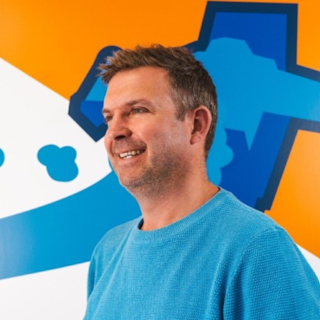What politicians can learn from brand Jeremy Clarkson, the UK’s ‘sexiest’ man
If the election was actually a popularity contest, there'd be a different crew running the world. Can politicians and brands learn from our most popular? Harry Lang explores.

When UK PM Rishi Sunak, with a level of confidence only available to former bankers with a billionaire for a wife, asked King Charles if he could dissolve parliament and host an election on July 4, we all had to question his motives.
Rishi isn’t dumb. Desperate, sure. Naïve? Certainly – but he’s got school smarts coming out of his Saville Row cuffs, so one assumes that some amalgamation of data and insight suggested that this date offered at least a smidgen of hope for his increasingly reviled party.
Explore frequently asked questions
But then he chose US Independence Day. Really? The day a bunch of colonies celebrated their long-desired freedom from an oppressive, vilified and elitist British regime? Where the fuck is Malcolm Tucker when you need someone who understands optics in politics?
Then there was Raingate. Some bright spark decided to put Rishi out in a maelstrom, and that set the tone. By day two, Sunak had slithered down the M4 to Wales to drum up some regional support and immediately offended the whole country by asking about ‘the football’ when Wales didn’t qualify for the Euros! He should have asked about ‘the rugby.’
Advertisement
We’re now way deeper into the election cycle, and it’s clear that every competent Tory researcher or PR specialist has already been sacked or decided a career polishing Saudi Arabia’s image would be easier and less awkward.
Since then, Sir Keir Starmer, increasingly looks like Christmas has come early as Sunak blew his first mover advantage with a series of hopeless PR gaffes and even more laughable policies.
Despite looking like three slices of spam squeezed into a two-slice suit, the former director of public prosecutions isn’t one to let his adversary self-immolate without pouring petrol on the fire, so he activated one of the most aggressive digital marketing campaigns ever seen in British politics.
Advertisement
Data from ‘Who Targets Me’ from the first few weeks of the campaign shows how Labour has gone scorched earth in their owned and earned media efforts. The party spent more than £1.2m in the first week of campaigning alone, split between £605,000 on Google Search and YouTube and £684,964 on Meta’s Facebook and Instagram platforms. Unless you’ve been on holiday for the past fortnight, you will have been bombarded with their unavoidable YouTube video ads promoting Labour’s ‘Five Missions’ and ‘Ten Policies to Change Britain.’
Seemingly the budget pot ran dry just before it executed the creative, with ad designs apparently crafted in PowerPoint, but no matter – the party is pushing on an open door.
Over on TikTok, Labour posted 54 videos to the Tories’ 14 by the end of week two of their campaigns. This is an interesting new medium for political campaigning, as Chinese owned Bytedance doesn’t allow political advertising, meaning the parties needed to get very good, very fast at owned media. What this means in real life is a number of niche creative hot shops, creators and influencers have paid for their Ibiza summer many times over in consultancy fees.
Labour tripled down on its organic video strategy with a blend of ‘The 3Ms’:
-
The missions
-
Media snippets showing their candidates being all leaderly and people-friendly
-
Memes, because LoL
Interestingly, I’ve yet to see any active campaigning on Twitch – a massively rich seam of socially engaged gamers. As of April 2024, the UK had around 13.4 million Twitch users. Maybe Rishi could regain some lost ground with a custom CS:GO skin and get everyone in mood for national service.
Suggested newsletters for you
Campaigning during an election is only the cherry on top, designed to swing undecided and dissatisfied voters into your team at the last minute. And there’s a lot of them this time.
Still, many British voters know who they’ll vote for years in advance due to entrenched beliefs, economic status, geography or because they trust The Mirror or The Sun. If brand advocacy on digital channels was the only KPI that influenced voting behavior, Jeremy Clarkson would be Number 10 before he could say, “Behold! I created bee juice!”.
The messiah of both petrol heads and farming aspirants alike has the social reach and everyman positioning to suck up votes faster than a nuclear-powered Dyson. He’s charismatic, fabulously wealthy and, apparently, a hit with the ladies, having recently claimed the title of the UK’s sexiest man for the second year in a row (FFS Specsavers – where are you? It’s an open goal!).
That said, the poll of 2,000 British women was conducted by Illicit Encounters, effectively an adultery platform, so the research is hardly IPSOS-grade. If your partner can’t be trusted, then neither should this data.
Clarkson is arrogant, antagonistic, and vainglorious – it’s astounding he doesn’t live in Downing Street already.
For the rest of us, we have another four weeks to enjoy/cringe watching politicians get themselves increasingly hyperbolic as ‘E Day’ approaches. All except Ed Davey, the leader of the Lib Dems, whose entire strategy is driven by nonsense. He’s garnering eyeballs by acting like a drunk dad at the village fete, and I, for one, can’t wait to see where this unmitigated and epic series of pratfalls lands him next week.
So could we have a future where Clarkson’s in Downing Street? In an era where any fame at any cost is considered valuable brand equity for the political elite, anything’s possible. Just look at Trump’s rise in the US if you don’t believe me.
Harry Lang is a CMO and author of ‘Brands, Bandwagons & Bullshit,’ available on Amazon. You can find Harry at @MrHarryLang and connect with him on LinkedIn.

